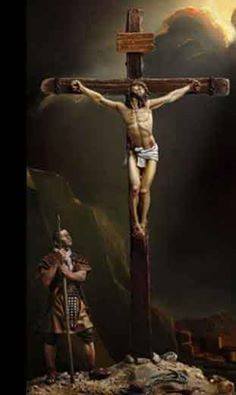
Key:
Diocese: TLMs administered by priests of the local diocese.
FSSP: TLMs administered by priests of the Fraternity of Saint Peter (FSSP).
Independent: TLMs administered by priests that do not operate under the control or approval of the local diocese or bishop.
SSPX: TLMs administered by priests of the Society of Saint Pius X (SSPX).
Archdiocese of Los Angeles
St. Therese Church (Diocese)
1100 East Alhambra Road
Alhambra, CA 91801
(626) 282-2744
Easter Sunday: 1:00 p.m.
Our Lady of the Angels Church (SSPX)
1100 West Duarte Road
Arcadia, CA 91007
(626) 447-1752
Holy Thursday: 7:00 p.m.
Good Friday: 2:00 p.m. (Mass of the Pre-Sanctified)
Holy Saturday: 10:00 p.m. (Easter Vigil)
Easter Sunday: 12:00 a.m., 7:00 a.m. & 9:00 a.m.
St. Mary Magdalen Chapel (Diocese)
2532 Ventura Boulevard
Camarillo, California 93010
(805) 484-0532
Easter Sunday: 1:00 p.m.
St. Anthony Roman Catholic Church (Diocese)
710 East Grand Avenue
El Segundo, CA 90245
(310) 322-4392
Easter Sunday: 1:30 p.m.
Holy Innocents Catholic Church (Diocese)
425 E. 20th Street
Long Beach, CA 90806
(562) 591-6924
Holy Thursday: 5:00 p.m.
Good Friday liturgy: 3:30 p.m.
Holy Saturday: 8:00 p.m.
Easter Sunday: 9:00 a.m.
Our Lady of Guadalupe Church (Diocese)
4018 E. Hammel Street
Los Angeles, CA 90063
(323) 261-8051
Easter Sunday: 10:30 a.m.
St. Vitus Catholic Church (FSSP)
607 4th Street
San Fernando, CA 91340
(323) 454-1002
Holy Thursday: 7:00 p.m.
Good Friday liturgy: 3:00 p.m.
Holy Saturday Easter vigil: 8:00 p.m.
Easter Sunday: 7:00 a.m., 9:00 a.m., & 11:00 a.m.
Maria Stella Maris Mission (SSPX)
3600 S. Gaffey Street
(on Leavenworth Drive inside Angels Gate Park
& Ft. MacArthur)
San Pedro, CA 90731
(310) 548-4706
Holy Thursday: 6:30 p.m.
Good Friday: 3:00 p.m.
Easter Sunday: 10:00 a.m.
St. Thomas Aquinas College Chapel (Diocese)
10000 N. Ojai Road
Santa Paula, CA 93060
(805) 525-4417
Holy Thursday: 7:30 a.m.
Easter Sunday: 7:15 a.m.
Saints Peter and Paul Catholic Church (Diocese)
515 West Opp Street
Wilmington, CA 90744
(310) 834-5215
Easter Sunday: 9:15 a.m.
Diocese of Orange
Saint John the Baptist Catholic Church (Diocese)
1015 Baker Street
Costa Mesa, CA 92626
(714) 540-2214
Holy Thursday: 12:30 p.m.
Easter Sunday: 12:30 p.m.
Our Lady Help of Christians (SSPX)
9621 Bixby Avenue
Garden Grove, CA 92841
(714) 635-0510
Holy Thursday: 7:00 p.m.
Good Friday: 2:00 p.m.
Holy Saturday: 10:30 p.m. (Easter Vigil)
Easter Sunday: 7:30 a.m. & 10:00 a.m.
Serra Chapel, San Juan Capistrano Mission (Diocese)
26801 La PLZ
San Juan Capistrano, CA 92675
Easter Sunday: 7:00 a.m.
Father Cedrik Starbuck's Chapel (Independent)
Santa Ana, CA (Information regarding the exact address is unavailable to the public. In order to attend and obtain the address an individual must email the priest here: [email protected])
John Paul II Polish Center (Diocese)
3999 Rose Drive
Yorba Linda, CA 92886
(714) 996-8161
Easter Sunday: 12:00 p.m.
Diocese of San Bernardino
St. Joseph's & Immaculate Heart of Mary Church (SSPX)
1090 West Laurel Street
Colton, CA 92324
(909) 824-0323
Holy Thursday: 7:00 p.m.
Good Friday: 12:00 p.m. (Stations of the Cross followed by Good Friday Liturgy)
Holy Saturday: 10:00 p.m.
Easter Sunday: 9:00 a.m.
San Secondo d'Asti (Diocese)
250 North Turner Avenue
Guasti/Ontario, CA 91761
(909) 390-0011
Holy Thursday: 4:00 p.m.
Good Friday: 7:00 p.m. (Veneration of the Cross)
Holy Saturday: 4:00 p.m.
Easter Sunday: 10:30 a.m. & 2:30 p.m.
Sacred Heart Church (Diocese)
43775 Deep Canyon Road
Palm Desert, CA 92260
(760) 346-6502
Easter Sunday: 2:30 p.m.
Saint Joan of Arc Mission (Independent)
County of Riverside (City Unknown), CA (Information regarding the exact address is unavailable to the public. In order to attend and obtain the address an individual must contact the priest here.)
Holy Thursday: 7:00 p.m.
Good Friday: 1:00 p.m.
Holy Saturday: 9:30 a.m.
Easter Sunday: 10:00 a.m.
Diocese of San Diego
San Juan Diego Center (Diocese)
3015 Pala Mission Road
Pala, CA 92059
Easter Sunday: 8:00 a.m.
Saint John Bosco Mission (SSPX)
4805 Mercury Street, Suite J
San Diego, CA 92111
Easter Sunday: 12:30 p.m.
Saint Anne Catholic Church (FSSP)
2337 Irving Avenue
San Diego, CA. 92113
(619) 239-8253
Holy Thursday: 7:00 p.m.
Good Friday: 3:00 p.m. (Solemn Liturgy),
Holy Saturday: 8:00 p.m.
Easter Sunday: 7:30 a.m., 9:00 a.m., 11:00 a.m., 1:00 p.m., & 6:00 p.m.
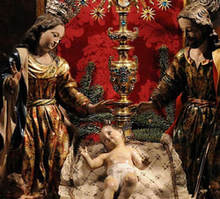
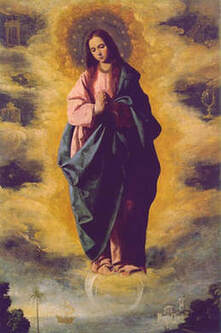
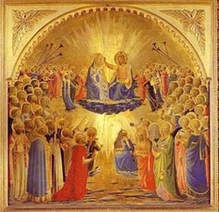
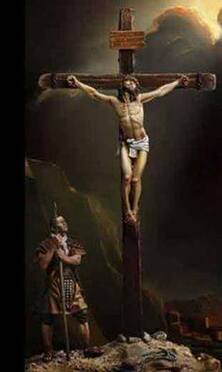
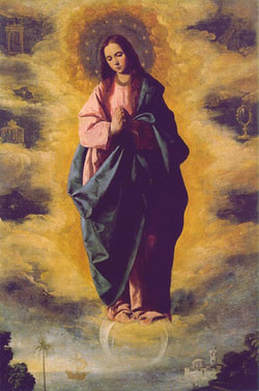
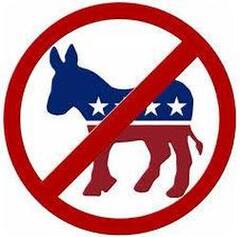
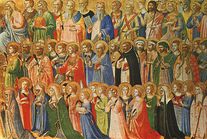
 RSS Feed
RSS Feed
